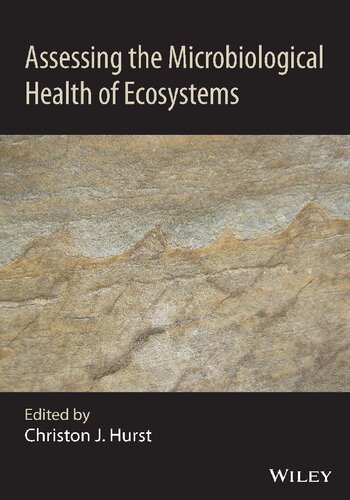

Most ebook files are in PDF format, so you can easily read them using various software such as Foxit Reader or directly on the Google Chrome browser.
Some ebook files are released by publishers in other formats such as .awz, .mobi, .epub, .fb2, etc. You may need to install specific software to read these formats on mobile/PC, such as Calibre.
Please read the tutorial at this link: https://ebookbell.com/faq
We offer FREE conversion to the popular formats you request; however, this may take some time. Therefore, right after payment, please email us, and we will try to provide the service as quickly as possible.
For some exceptional file formats or broken links (if any), please refrain from opening any disputes. Instead, email us first, and we will try to assist within a maximum of 6 hours.
EbookBell Team

4.7
76 reviewsA timely exploration of the coordinated functions of microbiological communities and the impacts of global climate change on microbial life
Ecosystems function like interlocking puzzles and ultimately the health of an ecosystem depends upon the niche activities of its microbial communities.
Assessing the Microbiological Health of Ecosystems summarizes our understanding of how microbial community processes are organized and the mechanisms by which activities of their constituent species are coordinated. The authors collectively present a basis for understanding what produces healthy microbial components of an ecosystem, thereby supplying a foundation for achieving one of the eventual future goals of environmental microbiology: to diagnose and correct the integrative nature of microbial activities when ecosystems fail. Assessing the Microbiological Health of Ecosystems will prove to be a valuable resource to environmental microbiologists, ecologists and integrative biologists. The book will:
By learning to recognize what constitutes and produces a healthy microbial ecosystem, we gain significant ground on the path towards being able to diagnose and correct the health of ailing microbial ecosystems. Assessing the Microbiological Health of Ecosystems will help new generations of scientists discern new ways to carry these efforts forward.